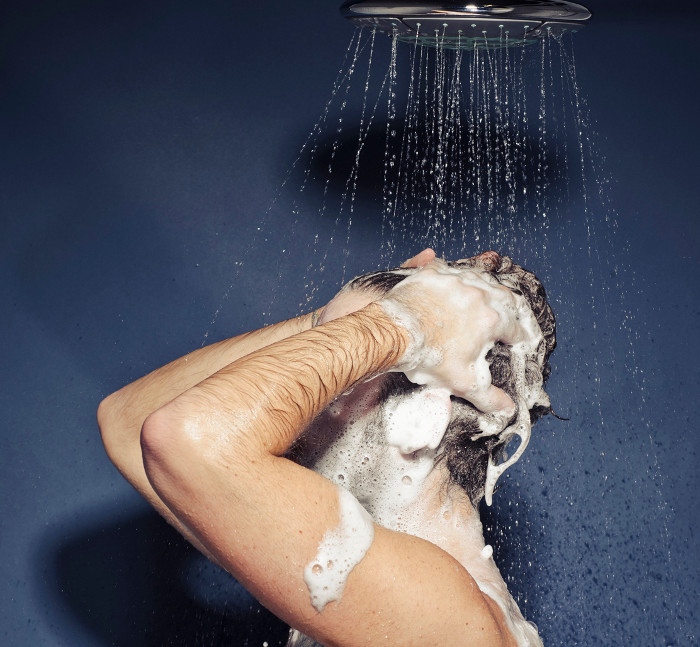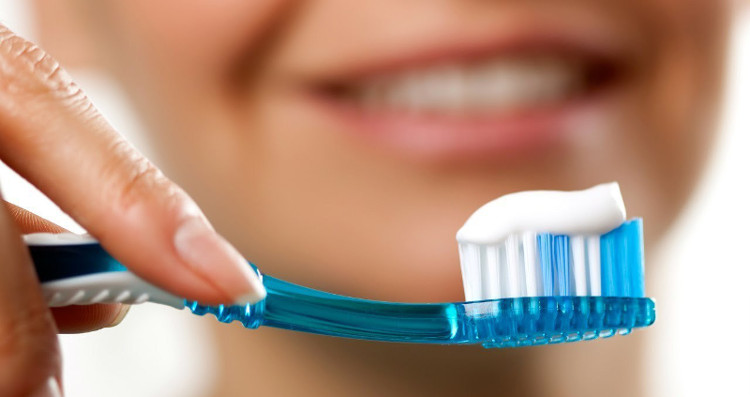How is personal hygiene the best in science?
When it comes to simple things like daily personal hygiene habits? Are you sure you made them scientifically and properly? Usually, most of these skills you have been taught as a child and maintain them until adulthood.
However, take an example of the recommended dental floss for 4 decades, and now, it turns out you don't need to use them. So where is the most scientific way for personal hygiene, from brushing your teeth, washing your hair to gargling and nail clippers?
Here are the tips summarized from experts in each field:
1. Should you wash your hair every few days?

According to experts, most of us do not need to wash our hair once a day.
Your scalp is greasy and causes hair to burn in the same way that your face skin meets. The sebaceous glands under the skin produce an oily substance. It moisturizes hair and scalp, keeping them from drying out. Therefore, it is paradoxical that if you wash your hair to get rid of lubricants and feel more dry, your scalp will produce more lubricants.
How many days should I wash my hair once depending on many factors including skin type, hair type, styling, dust exposure . However, according to experts, most of us do not need to wash once a day.Perhaps 3 days will be a more reasonable number.
2. Brush your teeth several times a day?

You should take about two minutes to brush your teeth twice a day.
According to the American Dental Association, you should take about two minutes to brush your teeth twice a day. However, they did not specify a clear time. Therefore, you just need to remember that you must brush your teeth before going to sleep. Night is the time when your mouth secretes less saliva, a condition that promotes tooth decay.
Also, you should not brush your teeth immediately after eating acidic foods, such as carbonated soft drinks. The reason is that acid is corrosive to tooth surfaces. If you use a toothbrush to rub your teeth now, it will promote corrosion. Wait 30 minutes, saliva will lower acidity in the oral cavity and you can brush your teeth afterwards.
3. Roll the armpit and deodorant spray, when is the best use?

The best time to use deodorant products is the night before sleep.
It's not that right before going to work or leaving the house, the best time to use deodorant is the night before you go to sleep. This dry period allows the antiperspirant to close the path. Compared to the use of deodorant products in the morning, when the sweat has come out, they will slip away.
You also do not need to worry about the effective time of deodorant products. Most of them work for up to 24 hours, so rest assured for a long day.
4. How often should you take a bath?

Bright or dark bathing depends on many factors.
Most of us are bathing too much. The dermatologist said that we only need to take a bath once every two to three days. If you are involved in heavy activity or playing sports, you may need to increase the frequency.
Is it better to take a morning or evening bath? This depends on many factors. But if you are an owner of oily skin, bathing in the evening is the most reasonable thing. 1 o'clock at night is the time when the body's peak for sebum production, without bathing, will make you more prone to acne.
5. Should you use dental floss?

You should only floss once a day.
The American Dental Association recommends that you only floss once a day. The US government has also recommended this for four decades.
But last August, a scientific report pointed out that the effectiveness of dental floss had never been studied before. So far there is no scientific evidence that says you should be flossing. So perhaps that is not necessary.
6. Should you use mouthwash?

You should only treat mouthwash as an extra measure.
According to the UK Health Service, using fluoride mouthwash can help prevent tooth decay. Gargling also helps you remove plaque. But just consider it an extra measure. You should never rinse your mouth instead of brushing your teeth.
7. How often should you cut and clean your nails?

Cut your nails when you start feeling them entangled.
This depends on how long you want your nails to be short. But on average, once or twice a week you should clean them . Cut your nails when you start feeling them entangled.
Do not let your fingernails and toenails be too long, in addition to causing discomfort, they may be more easily flaky. Nails and toenails work to protect you from injury. Therefore, pay attention to taking care of them.
8. Your eyeglasses, how often should they be cleaned?

You should clean the glass regularly.
According to the Australian Society of Ophthalmology, you should clean your "regular" glasses. This depends on many factors, such as the working environment, you have a lot of sweat . But basically, the right eyeglasses give you the best vision possible. So, wipe it every time you feel that you don't meet that requirement.
One thing to note is that do not use a shirt to clean the glass. The best and simplest is to use a little dishwashing liquid. Always place a clean cotton cloth in the glass case.
9. How often should you replace the razor?

After each shave, wash them with hot water and drain in dry air.
This, of course, depends very much on how good the blade quality is. This is affected by the frequency of usage and how you preserve them.
When you feel the blade is not working well, rub it too hard on the skin, which is when it is blunt and should be replaced. To keep the razor sharp for a longer time, after each shave, wash them with hot water and drain in dry air.
- WHO urges doctors to wash their hands often
- The Ministry of Health recommends prevention of bacillary dysentery
- The most terrible jobs ever appeared in the world
- 4 patients sharing a room will increase the chance of infection for each other by 20%
- Hygienic habits are useless
- How to clean the eyes, nose, ears and umbilical cord for newborns
- The facts about hygiene habits make us fall back
- Thanks to this special brush, you only need 10 seconds to brush your teeth
- 7 important principles in body hygiene
- Manufacturing personal ventilators with low cost
- Why is personal information revealed so important?
- 12 principles not to be missed in keeping the body clean
 Green tea cleans teeth better than mouthwash?
Green tea cleans teeth better than mouthwash? Death kiss: This is why you should not let anyone kiss your baby's lips
Death kiss: This is why you should not let anyone kiss your baby's lips What is salmonellosis?
What is salmonellosis? Caution should be exercised when using aloe vera through eating and drinking
Caution should be exercised when using aloe vera through eating and drinking